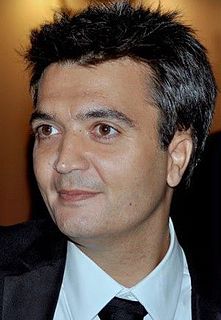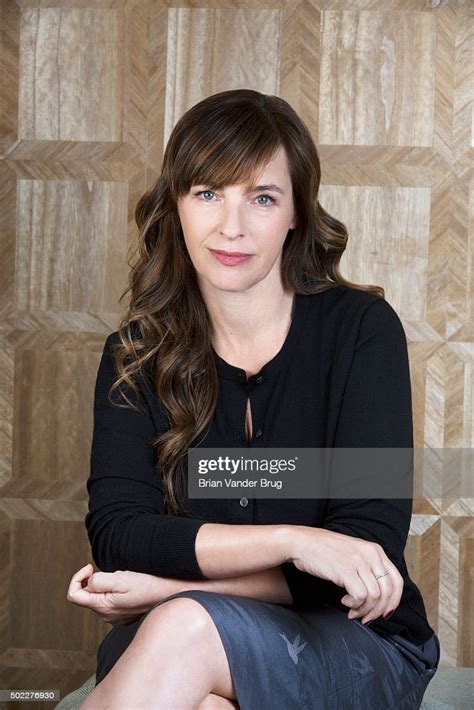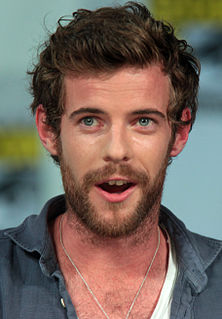A Quote by Thomas Langmann
I reread Mesrine's book every year because the way the story is told is fascinating. Today, we don't have gangsters like Mesrine - he had humor.
Related Quotes
People are more familiar with pictures of Jacques Mesrine that had been taken of him at the end of his life, when he was doing a lot of things with the media. So there's an iconic figure that people know, and I had to eventually get there; otherwise I guess the audience would have been disappointed. My only problem is that I'm a skinny guy, and it's very hard for me to put on weight.
The format of the book was the idea of my wonderful editor, Stephen Segal. Stephen and I had worked together before, on projects for the Interstitial Arts Foundation, and when he got the idea for an accordion-style book, he called and asked if I could write the story for it. I told him that I would love to try! And I knew it had to be a love story, because that's the sort of story you really want to hear from both perspectives. I mean, imagine if Pride and Prejudice were told from Darcy's perspective as well as Elizabeth's. It would be quite a different story!
Too many writers think that all you need to do is write well-but that's only part of what a good book is. Above all, a good book tells a good story. Focus on the story first. Ask yourself, 'Will other people find this story so interesting that they will tell others about it?' Remember: A bestselling book usually follows a simple rule, 'It's a wonderful story, wonderfully told'; not, 'It's a wonderfully told story.'
The face of the water, in time, became a wonderful book- a book that was a dead language to the uneducated passenger, but which told its mind to me without reserve, delivering its most cherished secrets as clearly as if it uttered them with a voice. And it was not a book to be read once and thrown aside, for it had a new story to tell every day.
Even thought this is a remarkable story [The danish Girl] and these are two fascinating people in their own right, Lili's story had been in the public domain but this had somehow slipped out of sight. It seemed bizarre then but I couldn't have imagined releasing the film in a climate like today around trans issues and the comfort people have about it in the public eye.
It's certainly a cliche to remark that a nonfiction book 'reads just like a novel,' but in the case of Jonathan Eig's 'The Birth of the Pill,' I have no other recourse, since his narrative is full of larger-than-life characters sharply limned and embarked on fascinating doings, their story told in sprightly visual fashion.
I want you to know who I am: what the streets taste like, feel like, smell like. What the cops talk like, walk like, think like. What crackheads do - I wanted you to smell it, feel it. It was important to me that I told the story that way because I thought that it wouldn't be told if I didn't tell it.
I always knew from the beginning that this was the only way to write Then We Came To The End - that it had to be in first - person plural if it was going to illustrate how the individual becomes part of the collective. I had no interest in writing the book in a more conventional voice. It goes back to that fascination I had with telling a story in multiple ways. It was the only choice I gave myself, really - I said "This is it, pal. If you can't tell a story this way, you're going to have to abandon the book. Write it this way or give up."
You just want to find a story that grabs you and that you've never seen before, but somehow you can't imagine it not existing. It's like a good book. What makes a good book is hard to say. I don't know. I just look for something that grabs me. I don't have a way of looking for a project, and I don't know many people that do. It's just year to year, and what's going around and what's there.


































